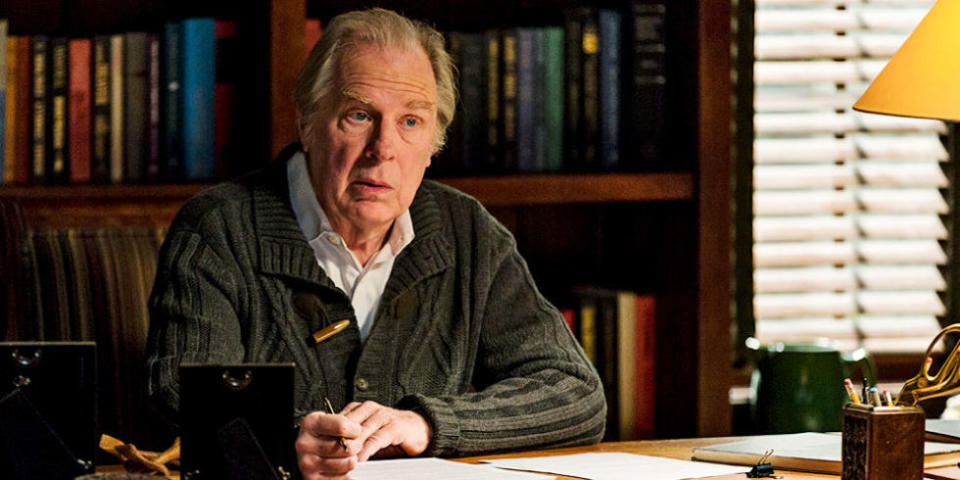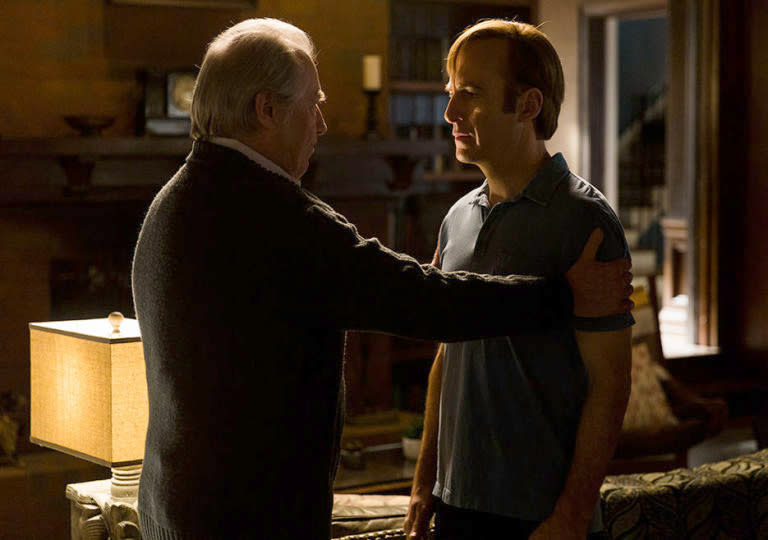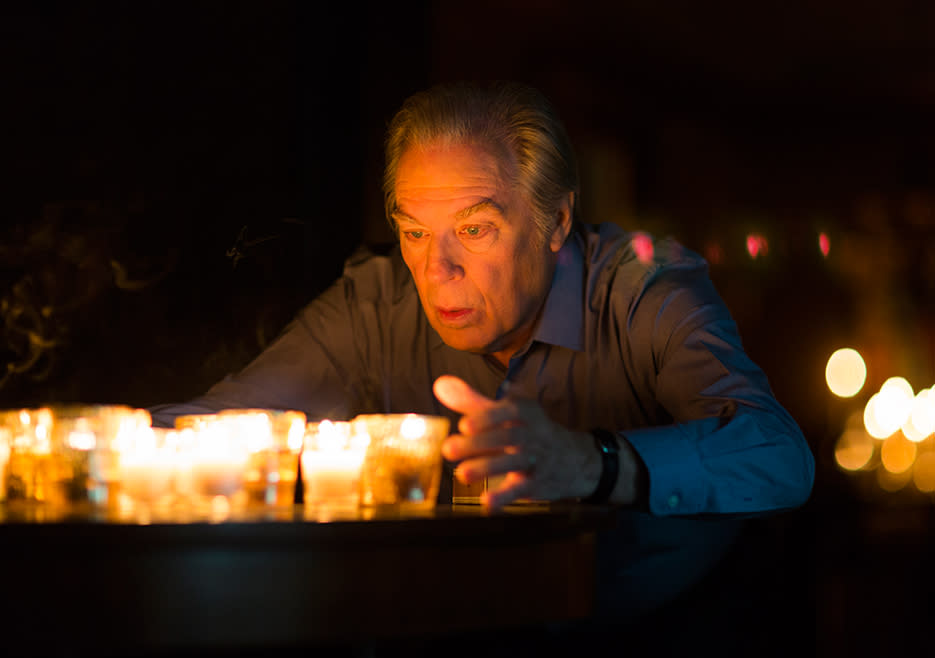The 'Better Call Saul' Finale Tapped Into the Horror of Untreated Mental Illness

It took until the penultimate episode of Better Call Saul's first season, in which a twist ending reveals that Chuck (Michael McKean) has been secretly sabotaging his brother's nascent legal career, for the show's conflict to crystallize. It was after that episode that #FuckChuck first became a rallying cry in the BCS fandom-with fans almost unanimous in their admiration for McKean's performance and their deep loathing for Chuck himself-who has now been a self-righteous thorn in Jimmy's (Bob Odenkirk) side for two seasons.
And who could blame them? Fuck Chuck. Not so much because he doesn't want Jimmy to be a lawyer-we've seen enough of Saul Goodman to know he's right to be concerned-but because he's so underhanded and mean-spirited in trying to stop him. He's priggish and obsessive and a stickler, dedicated to the sanctity of the law while casually bulldozing the feelings of those around him, his intellectual powers tempered by a staggering lack of sensitivity. Worst of all, he's consistently cruel to Jimmy, who follows him around like a puppy desperate for scraps of approval and takes care of him through his illness despite getting nothing in return (Chuck claims to suffer from electromagnetic hypersensitivity, an allergy to electricity-which is not a recognized medical diagnosis).
Last night's season finale took an extraordinarily dark turn with regard to that illness, as Chuck sinks into psychosis following his forced retirement from the law firm he built. After sending Jimmy away with the most brutal kiss-off imaginable-"I don't want to hurt your feelings, but you've never really mattered all that much to me"-Chuck shuts down all the power in his house, but becomes obsessed with one remaining source of stray electricity that he can't find. In a terrifying sequence that plays like an adaptation of Edgar Allen Poe's "The Tell-Tale Heart," he tears apart his house searching for the electricity source, and the episode's final moments find him catatonic, barely moving amidst the rubble. Finally he succeeds in pushing his one light source, a gas lamp, over into a pile of papers, deliberately sending the house and himself up in flames. This, presumably, is where Chuck's terrible story ends.

Prior to this season, the show has hedged its bets slightly about whether we're supposed to believe Chuck has a real medical sensitivity to electricity or an undiagnosed mental illness, but this past run of episodes has made the latter explicit. After Jimmy and Kim (Rhea Seehorn) successfully fend off Chuck's attempt to have Jimmy disbarred by goading him into a breakdown in the courtroom, Jimmy makes a big show of being unrepentant but Kim is haunted by guilt: "As far as I'm concerned, all we did is tear down a sick man." And now I finally understand why I've never quite been able to jump on the #FuckChuck bandwagon.
Now I finally understand why I've never quite been able to jump on the #FuckChuck bandwagon.
A while back I lost a family member to mental illness-an illness which worked its way into his bones and his blood and sapped him, over years, of the will to live. This relative was from the same generation as Chuck and shared his fierce pride, his resistance to showing mental weakness, and his inability to accept that his sickness was in his mind and not his matter.
I appreciated the nuance of Kim's reaction to the trial, the fact that the show never quite let us revel in Chuck's defeat even when he was at his most villainous, and the fact that he was shown making a genuine effort to get help-which is more than some sufferers ever manage. In a session with Clea DuVall's therapist, we get foreshadowing of what's to come as Chuck finally begins to face the truth about his illness: "What if it's all in my head? And if that's true, and it's not real… What have I done?" And it's midway through the finale, when Chuck called his therapist to cancel their session, that the feeling of dread takes hold. He's finally answered his own question, and the realization is too much for him to bear.

Since watching the finale, I keep thinking about another moment from the first season, one in which Jimmy has fallen asleep on the floor after working through the night and Chuck puts a pillow under his head. It's a tiny moment, but it's there for a reason, and it confirms that Chuck's terrible final words to Jimmy aren't true. "You've never really mattered all that much" is his disease talking, and so is his bleak assessment of Jimmy's moral prospects: "You're going to hurt everyone around you, you can't help it, so stop apologizing and accept it." But it's not clear whether Jimmy will ever know the difference.
So that's how an essentially decent bleeding heart like Jimmy McGill becomes a hollow creature like Saul Goodman; as showrunner Peter Gould put it in AMC's post-episode video, it's as though Chuck put a curse on him. At worst, Jimmy will go through the rest of his life truly believing that he never mattered to his brother; at best, he'll realize from the wreckage of Chuck's house that he wasn't in his right mind, but will still have to deal with the limitless unresolved pain that suicide leaves behind.
This is what untreated mental illness does at its worst. It makes you small and cold and incapable of reaching out, it turns your own house into a prison, it twists everything until the people who love you look like enemies. It's a tragedy that happens every day, to real people, and it's rarely depicted on screen this insightfully.
You Might Also Like

